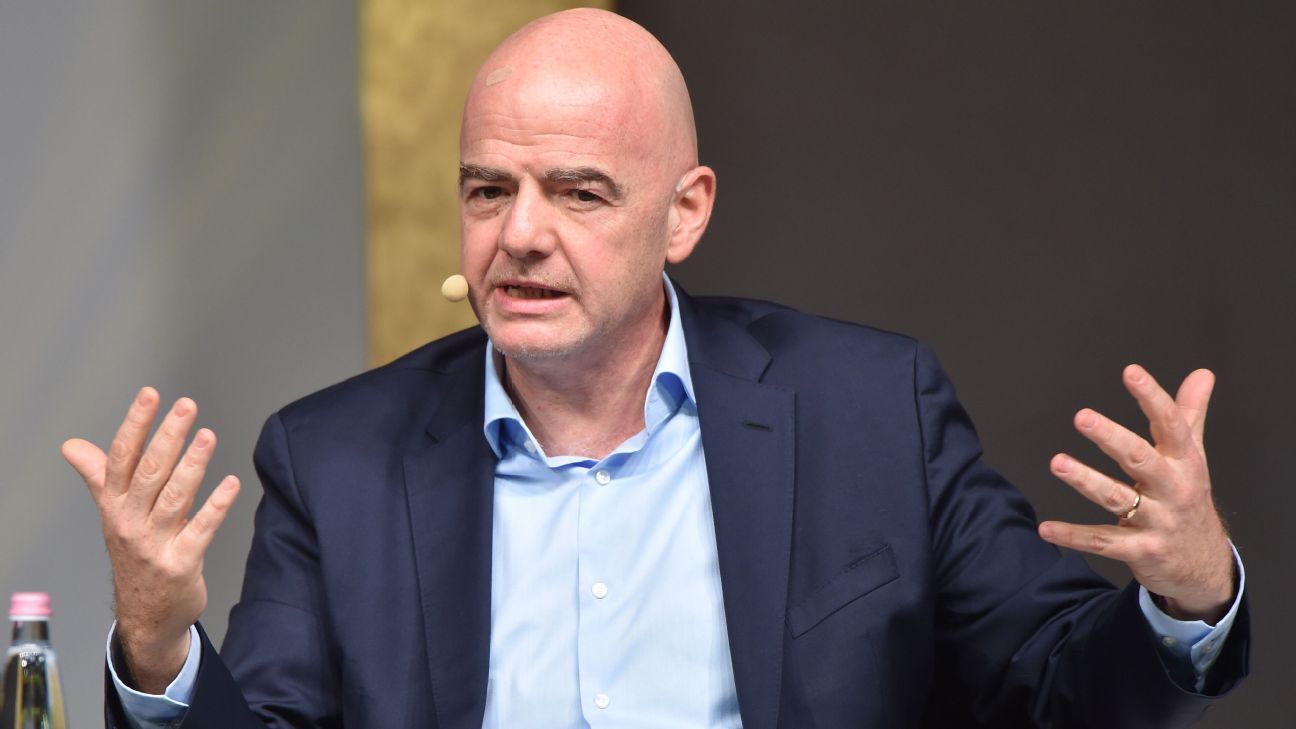A criminal case against FIFA president Gianni Infantino was opened Thursday by a Swiss special prosecutor. The case is connected to a meeting Infantino had with the Swiss attorney general.
The special prosecutor, Stefan Keller, closed an investigation into two complaints involving Infantino and Attorney General Michael Lauber — who announced his resignation last week — after turning up “elements that make up reprehensible behaviour.”
Keller opened a criminal case against Infantino as well as Valais prosecutor Rinaldo Arnold, and he has sought authorisation to open a legal case against Lauber too, according to a statement from the Swiss authority overseeing the federal prosecutors office.
Keller, a legal expert named to the post of special prosecutor on June 29, found that possible infractions included abuse of public office, breach of official secrecy, “assisting offenders” and “incitement to these acts,” the supervisory authority for the office of the attorney general said in its statement, adding that other criminal acts and proceedings could also be considered.
Suspects in such cases benefit from a presumption of innocence in Switzerland until legal proceedings are completed.
FIFA declined to comment.
Lauber offered to resign Friday, only minutes before a federal court upheld allegations that he had lied about a meeting he had with Infantino during a sprawling investigation into football corruption.
It came in response to Lauber’s appeal against being disciplined in March for misconduct.
The internal disciplinary case against Lauber focused on a meeting he had with Infantino in June 2017 at a hotel in Bern, at which the prosecutor took no notes.
They later both said they could not recall their discussion at what was their third meeting in a 15-month period. “On the basis of general life experience, such a case of collective amnesia is an aberration,” the federal court ruling said last week.
Lauber is set to join former FIFA president Sepp Blatter and former UEFA president Michel Platini as senior officials in Switzerland who lost their jobs because of an investigation that began in November 2014.
